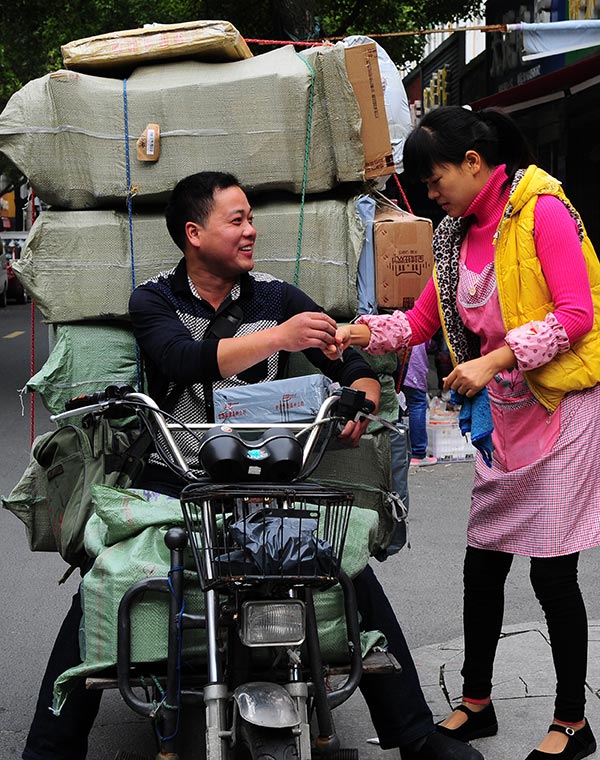 |
|
An express courier delivers a parcel to a patron of Taobao.com, an online shopping website of Alibaba Group in Suzhou, Jiangsu province.[Provided to China Daily] |
The regulator reported that rights holders have criticized Alibaba's enforcement program as too slow, difficult to use, and lacking transparency. While it didn't re-list Taobao, the USTR's recommendations included simpler processes to register and request enforcement and reduced timelines for taking down listings and issuing penalties.
Re-joining the name-and-shame list would damage Alibaba's reputation in the US, where its shares trade and the company is trying to cultivate relationships with retailers and entertainment companies.
While Alibaba is the biggest operator in China, that's also made it highly dependent on its home market, which generates more than 80 percent of revenue. With the domestic economy slowing, the ability to grow in the rest of the world will be critical.
"In the next 10 years, they're not just satisfied with the China market. They want to attract foreign merchants to sell to China," Michelle Ma said.
The company co-founded by Jack Ma headed into 2015 as the toast of Wall Street after a record September IPO.
Four months later, China's State Administration of Industry and Commerce issued a so-called "white paper" accusing Alibaba of allowing merchants to co-opt famous brands and sell fake wine and handbags.
While the company protested and the agency ultimately said the paper didn't have "judicial effect," the impact on its shares was dramatic. The stock slumped by more than 40 percent between the SAIC criticism and a record low in September.
An old headache resurfaced when Kering SA, the owner of brands like Gucci and Yves Saint Laurent, sued Alibaba for allowing copyright infringement-after withdrawing a similar complaint in 2014. The Chinese company said the lawsuit had no merit.
Then came the USTR report, which echoed criticism by the American Apparel & Footwear Association, which counts Levi Strauss & Co and Under Armour Inc among its members. Alibaba's reluctance to stamp out counterfeiters may stem from a fear of losing customers who seek out such products to other platforms, said AAFA President Juanita Duggan.
The sheer volume of listings on e-commerce websites makes policing fakes trickier. Amazon.com Inc and EBay Inc. struggled with similar issues early on, said Sage Chandler, Senior Director, International Trade at the Consumer Technology Association.
